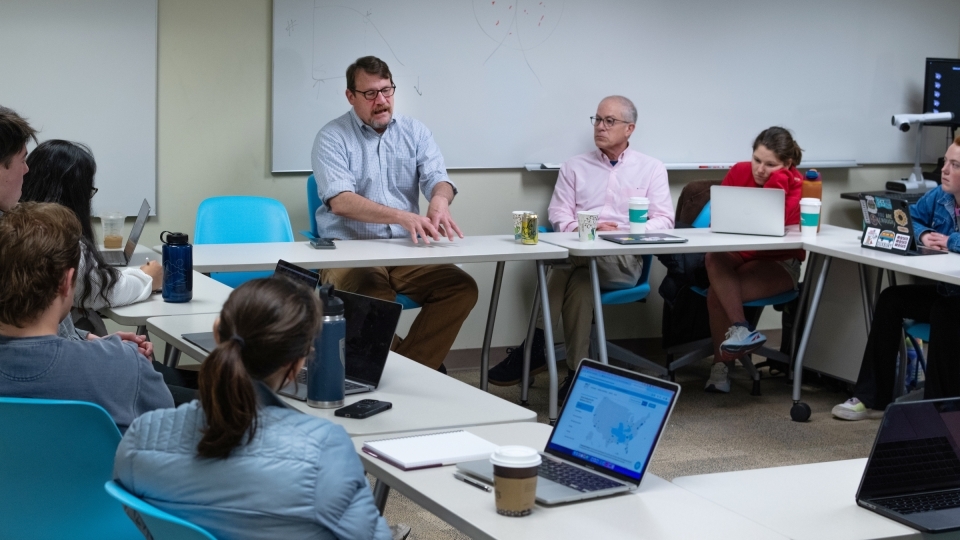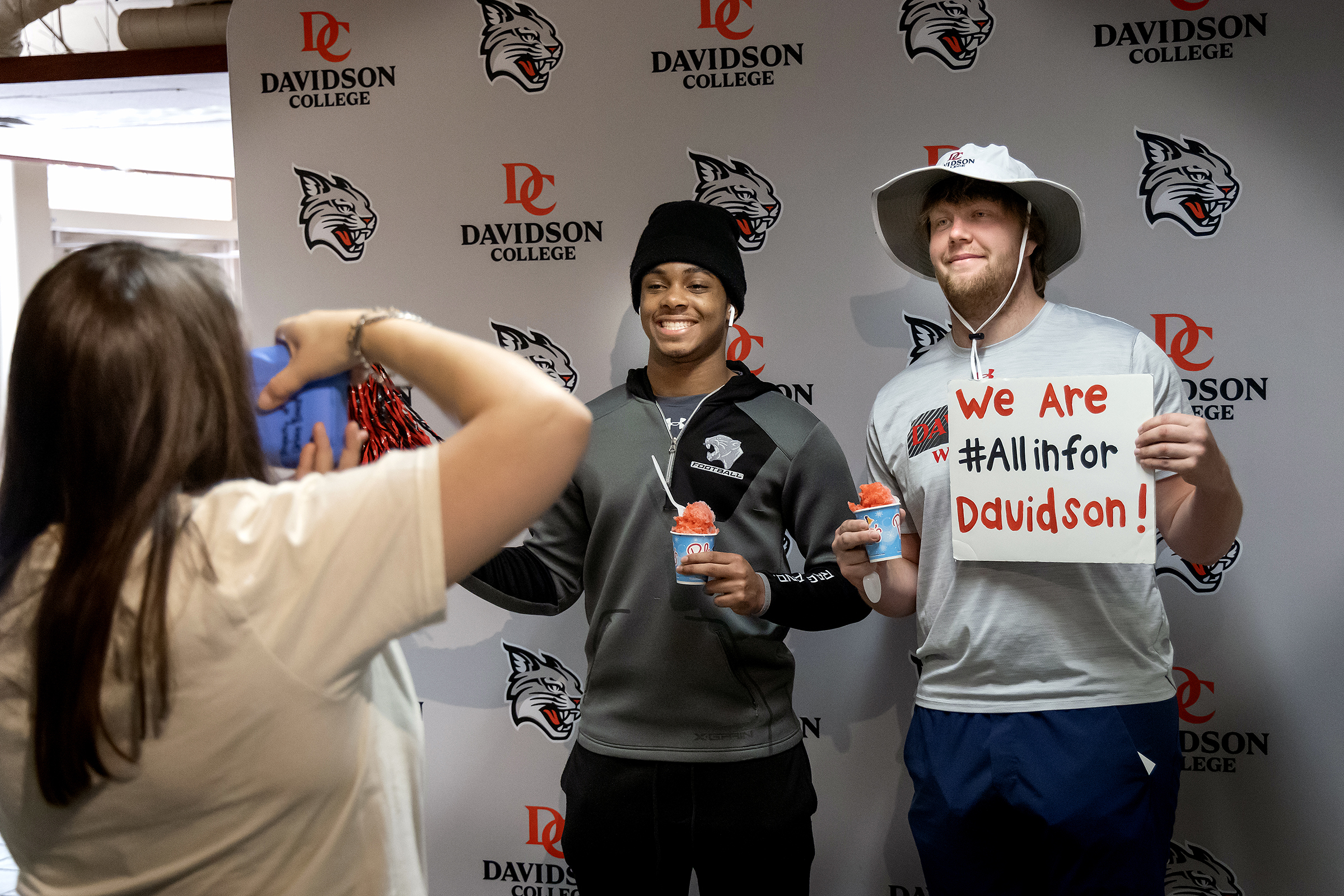CDC Chief: Combatting a Pandemic With Unexpected Twists
March 22, 2024
- Author
- Italy Ramos ’25

John T. Brooks, M.D., led the Center for Disease Control and Prevention’s response during the COVID-19 pandemic. Brooks visited classes and delivered a talk about his role in protecting the public.
John T. Brooks, M.D., chief medical officer (CMO) of the CDC’s Division of HIV Prevention, visited Davidson College recently to talk about medicine, masking, infectious diseases and public trust.
Brooks started his career as an epidemic intelligence service officer and became a renowned clinical infectious disease and epidemiology expert. He served as the CDC’s CMO over COVID-19, leading the agency’s response to a virus that didn’t follow expected patterns. Here’s an excerpt from an interview with Brooks, which has been edited for brevity:
How did you become involved in COVID-19 response for the CDC?
I trained as an EIS officer at CDC and was familiar with how to investigate outbreaks. During my time in HIV, I’ve helped with a national response to other outbreaks. I worked on the anthrax terrorist event in Washington, D.C., (when letters with anthrax spores were sent to some politicians and media figures in 2001, leading to multiple infections and five deaths), then on SARS (severe acute respiratory syndrome), then on Ebola, and each time, was growing in what I was doing.
COVID came along and they said, “we really need your help on this.” At first it didn’t seem like much, but it rapidly snowballed into this major pandemic, and I ended up being the chief medical officer on it for more than two years.
What did your day-to-day look like in that role?
At first, I’d wake up and get on my computer and get to work. [Later], we'd all meet in rooms and share information. One of my most important jobs was to make sure that I was learning what was going on outside of CDC. Who else was studying the key questions in outbreak control? The first thing is to stop transmission. To do that, you must know, how is it transmitted? Who are the people who are transmitting it? When are they infectious to other people? How are they getting it? What can we do to interrupt that process?
We do a lot of those studies at our agency, but people over the world were doing them. I wanted to pull in that knowledge as we made critical decisions. The biggest thing I got involved with was the science of masking, and the effectiveness of masks to interrupt transmission.
Is reaching out to communities a part of your job?
One of the most important things in successful public health is talking to the public. You build trust by being a reliable partner for information. People had a lot of questions. It was important that we could communicate with the public, which became more difficult for complex reasons and may have contributed to some of the bad feelings people have about CDC.
Many people from our agency would've liked to talk more directly to the public. You want to tell people everything you know, establish what you don't know, and then explain that there's always uncertainty. You want to help them deal with that uncertainty but let them know things will probably change. You help them understand that history has shown us that what we thought the answer was sometimes changes, and they have to be ready for that — but we’ll be there with them, helping them get through it. That is probably one of the most important parts of public health that people underestimate — that communication.
What made COVID different from other infectious diseases?
One of the most fundamental unexpected things was recognizing that it could be transmitted in people who were not symptomatically ill with the disease.
Everybody’s expectation at the beginning was SARS-CoV-II, the virus that causes COVID-19, would behave like its very close sibling, SARS-CoV-I, the cause of SARS. The evidence at the time was that those diseases are only transmitted by people who are exhibiting symptoms of illness. To help prevent transmission, we’d say, “As soon as you have any symptoms, whether it’s COVID or not, go isolate. If you don’t have symptoms, it’s fine to go out in public and do your regular thing.” Well, that changed. And that was a big, abrupt change.
This is a truism, but it’s even more true with outbreaks: Expect the unexpected.
Any advice for those interested in infectious disease response?
The world’s a big place and there’s a lot to learn. I can’t stress how valuable it is to travel abroad and see how other people manage their lives and work through health crises. And to understand how people view our country from the outside. It’s a little painful sometimes. It builds a lot of humility when you learn that you can best help people by teaching them how to help themselves.



